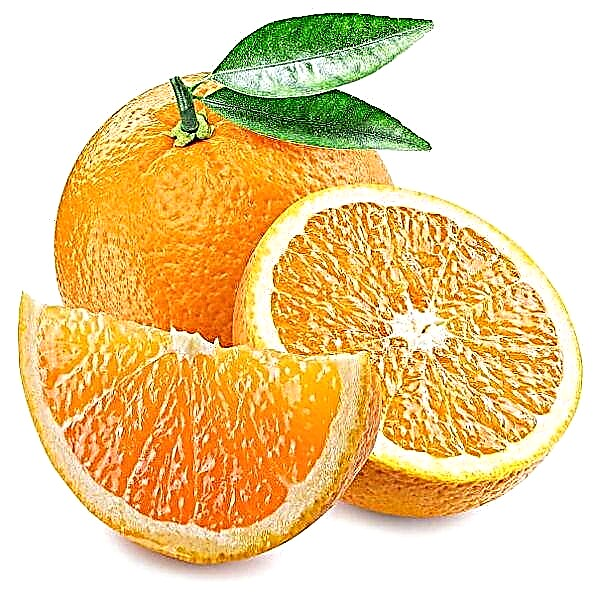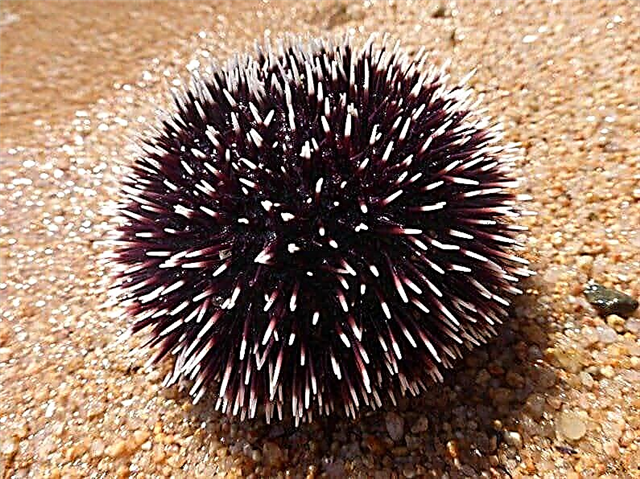
Eating fresh fruits on a regular basis is an integral part of a healthy diet, as well as a great way to enhance immunity and prevent various diseases.
Fruits saturated with vital fibers, vitamins, minerals and other phytonutrients (nutrients) act as strong antioxidants that protect the human body from free radicals - highly reactive molecules that cause tissue damage. All fruits are healthy, but the following 5 fruits have special benefits and are recommended for inclusion in the daily diet.
Orange

Orange is a citrus fruit that, in addition to vitamin C, contains a lot of fiber, thiamine, folic acid, calcium, potassium, and magnesium. The combination of these substances strengthens the human immune system. Eating one orange provides 130% of the daily dose of vitamin C and 250 mg of potassium. This fruit is also saturated with the hesperidin phytochemical, which improves vascular health and reduces the risk of heart attacks.
Orange juice contains citric acid, which prevents kidney stones from appearing. Orange is a rich source of iron, extremely useful for stabilizing blood sugar and preventing anemia. Antioxidants “flavonoids” in oranges have anti-inflammatory properties, which reduces pain in arthritis.Oranges contain D-limonene, an effective anti-cancer agent. Vitamin C also helps the body fight cancer.
Banana

Bananas are a rich source of vital vitamins and minerals, especially vitamins B, C and potassium. These fruits contain a lot of potassium, a mineral that promotes heart health and stabilizes blood pressure, reducing the risk of developing hypertension and stroke. One banana includes 15% Vitamin C, 33% Vitamin B, 12% Potassium and 16% Fiber. Recommended daily intake of these substances..
There are a lot of carbohydrates in a banana, which in green, unripe fruits consist of resistant starch that regulates blood sugar. Pectin, which improves digestion, also belongs to the fruit's beneficial substances. The plant compounds dopamine and catechin act as powerful antioxidants.
Garnet

In one pomegranate there are many vitamins A, B, C, K, E, fiber, minerals and other phytonutrients, including phosphorus, iron, potassium, calcium, folic acid, niacin, thiamine. The presence of antioxidants in pomegranate juice is 3 times the amount of these substances in red grapes or green tea. This drink contains antioxidant substances anthocyanins, ellagic and gallic acid, tannins, flavonoids, quercetin, which help in the fight against cardiovascular diseases, osteoarthritis, diabetes and some types of cancer.
Daily consumption of pomegranates normalizes blood pressure and reduces inflammation of blood vessels in people with heart failure. The beneficial substances in these fruits prevent atherosclerosis and blood coagulation. Pomegranates are able to block cancer cells from free radicals, since the nutrients of this fetus can displace free radicals in the body. Antioxidants in the fetus are important to neutralize toxins and increase immunity, because they have strong antimicrobial and antibacterial effects.
An Apple

An apple is a crispy fruit that is rich in nutrients at a low calorie content (about 80 kcal). One medium raw apple with a peel includes 4 g of fiber, 8 mg of vitamin B, C, K, 160 mg of potassium, 10 mg of calcium, 10 mg of phosphorus. Apples are extremely beneficial for healthy bones. Flavonoids and a large amount of boron strengthen bone tissue and help in the treatment of osteoporosis. Apple peel contains pectin, which prevents the accumulation of cholesterol on the walls of blood vessels, reducing the likelihood of heart disease, and improves digestion and metabolism.
These fruits are also useful in treating anemia due to their high iron count. Quercetin antioxidant content in apples protects the brain cells from free radicals, which avoids the development of Alzheimer's disease. The consumption of these fruits also reduces the risk of developing asthma, diabetes, and cancer. Flavonoids, quercetin, and naringin in apple fruits help prevent lung disease.
The most healthy fruit

Blueberries lead among fruits and vegetables in antioxidant activity. This berry is known for its high content of fiber, vitamins C, K, manganese. The consumption of this berry favorably affects the human immune system due to the presence of vitamin C in it; fiber helps maintain heart health, and manganese strengthens bone tissue. Blueberries have turned purple due to the strong antioxidant Anthocyanin in it, which belongs to flavonoids.
Anthocyanins protect human brain cells, which improves memory. Antioxidants are also effective against heart disease, cancer, Parkinson's disease, and diabetes. Blueberries (along with blackberries, cranberries, raspberries) are filled with lutein, which improves vision, preventing macular degeneration.
Regular consumption of this fetus increases killer cells in the body, which fight stress and viral infections. In addition, blueberries, as the strongest antioxidant, protect the skin from the effects of free radicals and prevent the effects of aging.
Thus, the list of the most healthy fruits includes orange, banana, pomegranate, apple and blueberry, which is the fruit with the highest antioxidant effect and leading this rating. These fruits contain many nutrients that protect the human body from the effects of harmful molecules and provide good health.












